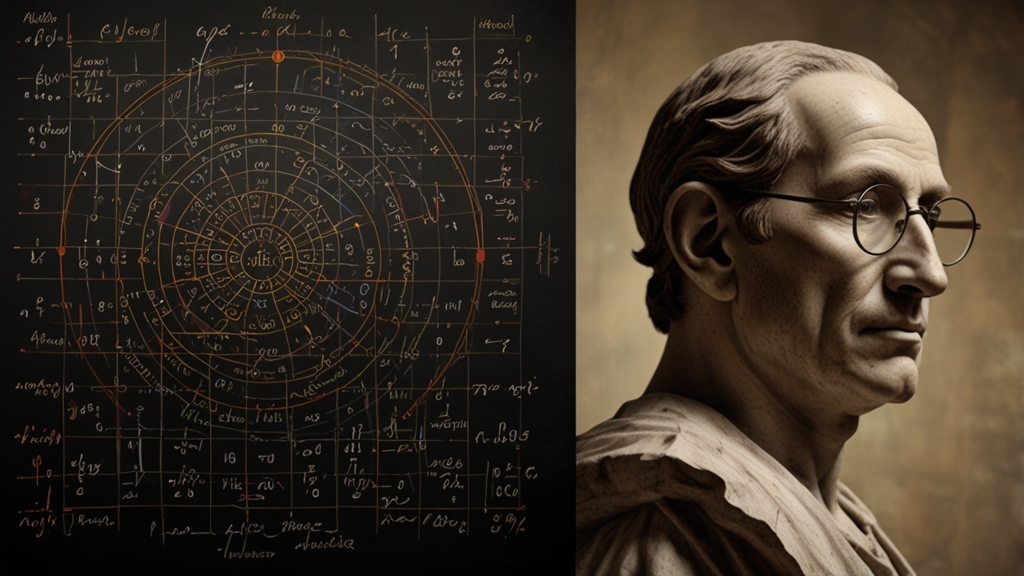Eclipses and Omens: How the Ancients Interpreted Celestial Events
The sky has always fascinated humanity, and celestial events have been interpreted in myriad ways throughout history. Among these phenomena, eclipses held a special significance. The dramatic blotting out of the sun or moon triggered awe and trepidation, leading various ancient civilizations to ascribe mystical meanings and omens to these occurrences. This article delves into how different cultures perceived and responded to eclipses.
Babylonian Astronomy and Divination
The Babylonians were among the earliest civilizations to systematically observe celestial events, including eclipses. They meticulously recorded these occurrences on clay tablets, seeking patterns and correlations. Eclipses were often interpreted as divine messages. For instance, a lunar eclipse was believed to be an omen for the king, predicting both peril and protection. The Babylonians developed the "Saros Cycle," a period of approximately 18 years, to predict these events.
"The Babylonians saw the sky as a grand tapestry woven by the gods, with each celestial event carrying a divine message. To them, eclipses were not mere natural phenomena but cosmic symbols laden with omens."
The Chinese and Celestial Advocacy
In ancient China, eclipses were primarily seen as a cosmic irregularity, often attributed to celestial creatures such as dragons swallowing the sun or moon. The Chinese word for eclipse, "shi," means "to eat," illustrating this belief. These events incited fear because they disrupted the cosmic order, which could potentially spill over into earthly chaos.
Imperial astrologers played a critical role in predicting eclipses to ensure timely rituals and counter-measures. Failure to predict an eclipse was considered a severe dereliction of duty and could lead to harsh penalties.
"Ancient Chinese astronomers were charged with the immense responsibility of safeguarding cosmic harmony. Their ability to predict eclipses was not only a scientific endeavor but a crucial duty to maintain social order and celestial balance."
Greek Rationalism and Naturalism
The Greeks approached celestial phenomena with a more analytical mindset. Philosophers like Thales of Miletus and Anaxagoras not only predicted eclipses but also sought to explain them through natural causes rather than divine intervention. Thales is credited with predicting a solar eclipse in 585 BCE, a remarkable feat that marked a significant shift in how these events were understood.
For the Greeks, an eclipse still held symbolic significance but often in a more philosophical or naturalistic context. The recognition of celestial mechanics didn't entirely strip these events of their awe-inspiring quality; instead, it enriched their understanding of the universe.
Mesoamerican Interpretations
The Maya civilization in Mesoamerica had an intricate system of astronomy, and eclipses were meticulously calculated within their calendar systems. They believed eclipses could portend significant events, particularly disasters or the overthrow of rulers. Rituals and sacrifices were often conducted to appease the gods and mitigate any negative outcomes.
"For the Maya, the celestial clockwork was entwined with their calendar, prophecies, and rituals. Eclipses, as part of this intricate system, were deeply spiritual events that necessitated reverence and ritualistic intervention."
A Global Fascination
Across the globe, eclipses prompted a vast array of interpretations and responses from various cultures. From the Norse tales of wolves swallowing celestial bodies to the Hindu myth of the demon Rahu consuming the sun or moon, these events were universally seen as crucial cosmic signals.
What unifies these diverse interpretations is the recognition of eclipses as powerful, transformative events. While modern science provides clear explanations and predictions for eclipses, the awe they inspire is a testament to their enduring impact on the human psyche.
In conclusion, the ancients' interpretations of eclipses reflect a deep-seated human desire to understand and find meaning in the universe. Whether through divine intervention, celestial mechanics, or prophetic signs, these extraordinary events have always captured the imagination and reverence of humankind.









